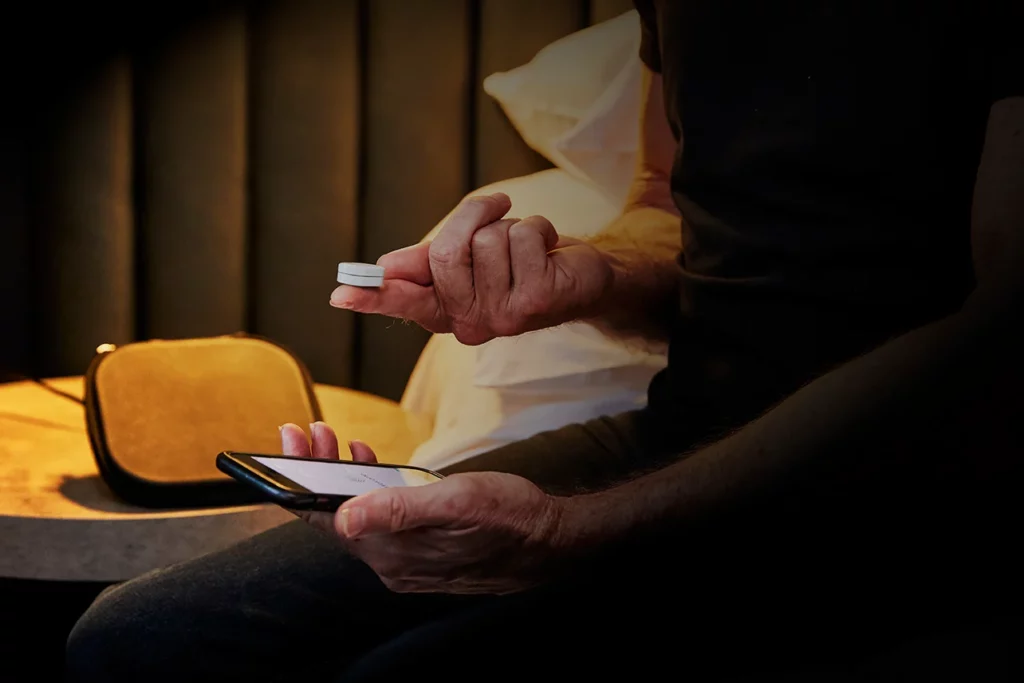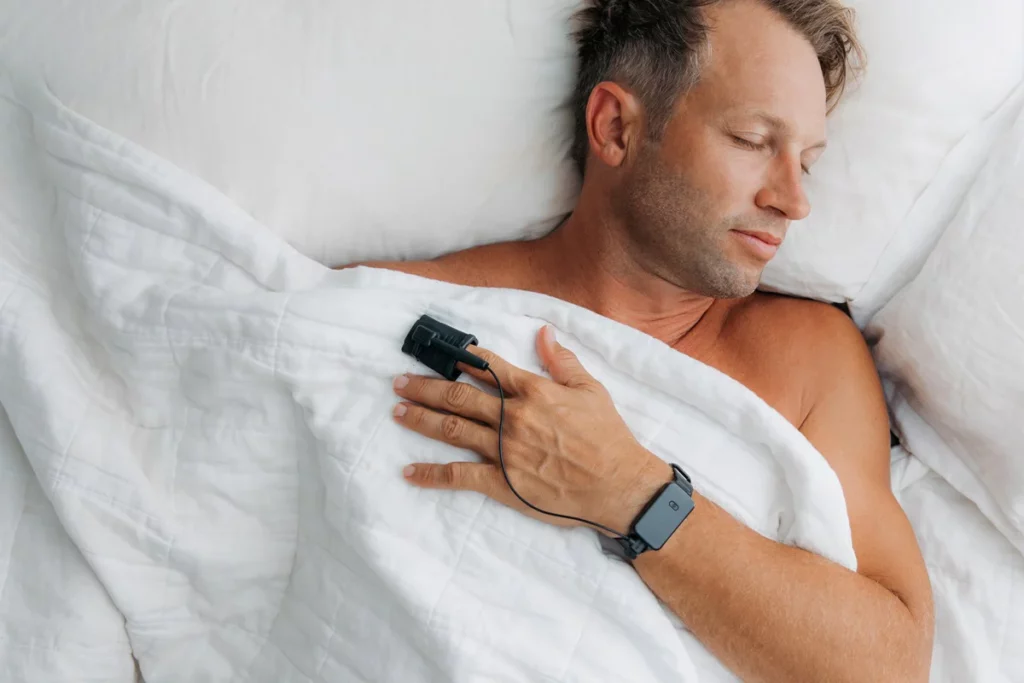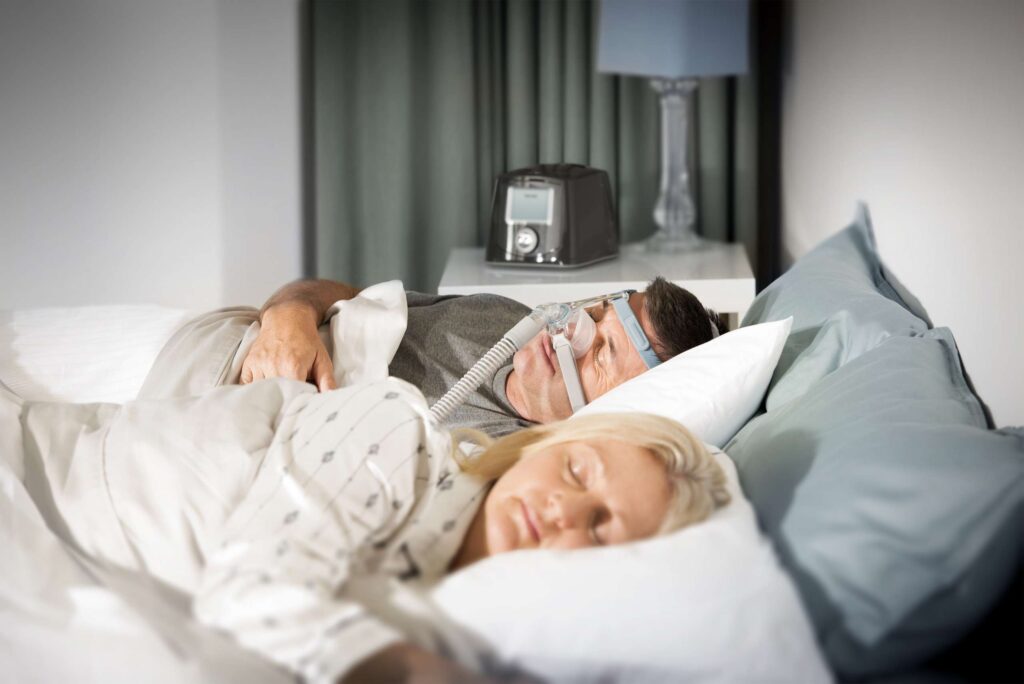If you suspect that you may have sleep apnea, it is essential to get a proper diagnosis and treatment. Sleep apnea is a common sleep disorder characterized by pauses in breathing during sleep. These pauses, known as apneas, can last for a few seconds to a minute and can occur multiple times throughout the night. While sleep apnea can affect anyone, it is most commonly seen in overweight individuals and those over the age of 40.
Understanding Sleep Apnea
Sleep apnea is a condition that affects the way you breathe while you sleep. The most common type of sleep apnea is called obstructive sleep apnea (OSA). With OSA, your airway becomes partially or completely blocked during sleep, causing interruptions in breathing and disrupting your sleep patterns.
By taking a sleep apnea test at home Australia, you can gain valuable insights into your sleep patterns and determine if further treatment is necessary. Remember, seeking out professional medical advice is essential for accurate diagnosis and appropriate treatment. Don’t let sleep apnea go undiagnosed – take control of your sleep health today.
The Science Behind Sleep Apnea
During normal breathing, air flows freely through the nose, throat, and airways, allowing oxygen to enter the lungs. However, in individuals with sleep apnea, the muscles in the throat and tongue relax more than normal, leading to airway blockages.
When the airway is blocked, your body responds by briefly waking you up from your sleep to restart breathing. These awakenings are often so brief that you may not remember them, but they can significantly disrupt your sleep and prevent you from getting the rest you need.
Another important aspect to consider is the impact of untreated sleep apnea on mental health. The fragmented sleep caused by the condition can result in mood swings, depression, and anxiety. Additionally, the lack of restorative sleep can impair cognitive function, affecting memory, concentration, and decision-making abilities.

Common Symptoms and Risks of Sleep Apnea
Sleep apnea can have various symptoms, including loud snoring, gasping or choking during sleep, excessive daytime sleepiness, morning headaches, difficulty concentrating, and irritability. If left untreated, sleep apnea can lead to more severe health conditions such as high blood pressure, heart disease, stroke, and diabetes.
It’s crucial to recognize the signs of sleep apnea and seek medical attention for proper diagnosis and treatment. By addressing sleep apnea, individuals can improve their quality of life, reduce health risks, and enhance overall well-being.
The Importance of Sleep Apnea Testing
If you suspect that you may have sleep apnea, it is crucial to undergo testing to confirm the diagnosis. While there are several testing options available, including in-lab sleep studies, home sleep apnea testing has become increasingly popular in recent years.
Home sleep apnea testing involves the use of portable monitoring devices that you can use in the comfort of your own bed. These devices measure your breathing patterns, oxygen levels, and heart rate while you sleep, providing valuable data for healthcare professionals to analyze.
To find more about sleep test click here.
Health Implications of Untreated Sleep Apnea
Untreated sleep apnea can have serious health implications. The repetitive interruptions in breathing can strain your cardiovascular system, leading to high blood pressure, heart disease, and an increased risk of stroke. It can also contribute to the development or worsening of diabetes and obesity. Find more about stroke on https://www.nhlbi.nih.gov/health/stroke
In addition to physical health risks, untreated sleep apnea can also impact your mental health. Chronic sleep deprivation caused by sleep apnea has been linked to mood disorders, such as depression and anxiety, as well as cognitive impairment and memory problems.
Benefits of Early Detection and Treatment
Diagnosing and treating sleep apnea early can significantly improve your quality of life and reduce the risk of associated health problems. Proper treatment can help you get better sleep, increase your energy levels, improve mental focus, and reduce the risk of accidents caused by daytime drowsiness.
Furthermore, treating sleep apnea can also have a positive impact on your relationships. Snoring, a common symptom of sleep apnea, can disrupt your partner’s sleep and strain your relationship. By seeking treatment, you not only improve your own health but also enhance the quality of life for your loved ones.
Overview of Home Sleep Apnea Tests in Australia
Home sleep apnea tests are a convenient and cost-effective way to diagnose sleep apnea. These tests allow you to monitor your sleep in the comfort of your own home, providing valuable data for a sleep specialist to analyze.
In Australia, the use of home sleep apnea tests has been steadily increasing due to their accessibility and ease of use. Patients no longer have to spend a night in a sleep clinic for monitoring, as they can now conduct the test in their own beds. This shift has not only improved patient comfort but also reduced the burden on healthcare facilities, allowing them to focus on more critical cases.
How Home Sleep Apnea Tests Work
A home sleep apnea test typically involves wearing a portable monitoring device while you sleep. This device measures different parameters such as airflow, oxygen levels, snoring, and body movements to assess the presence and severity of sleep apnea.
The data collected from these devices is then analyzed by sleep specialists to determine if the patient has sleep apnea and to what extent. This analysis includes identifying apnea events, hypopnea episodes, and the overall quality of sleep. By examining these metrics, healthcare providers can tailor treatment plans to suit the individual needs of each patient.
Accuracy and Reliability of Home Tests
Home sleep apnea tests can provide accurate results when used correctly. However, it is important to note that these tests are not suitable for everyone. Individuals with certain medical conditions or complex sleep disorders may require an in-lab sleep study for a comprehensive evaluation.
Despite their convenience, home sleep apnea tests may have limitations in detecting certain types of sleep apnea or other sleep-related issues. It is essential for patients to follow the instructions provided by their healthcare providers carefully to ensure the accuracy and reliability of the test results. Regular communication with healthcare professionals is crucial to address any concerns and optimize the effectiveness of home sleep apnea testing. Click here to learn more about reliability.
Preparing for a Home Sleep Apnea Test
Before conducting a home sleep apnea test, there are a few steps you need to take to ensure accurate results. These include gathering the necessary equipment and setting up your sleep environment properly.
When preparing for a home sleep apnea test, it is crucial to understand the significance of this diagnostic tool in assessing your sleep quality and potential breathing disorders. By following the recommended guidelines and instructions, you are taking a proactive step towards addressing any underlying issues that may be affecting your overall health and well-being.
Necessary Equipment and Setup
Most home sleep apnea tests require the use of a portable monitoring device, which typically includes sensors that need to be attached to your body. Before starting the test, carefully read the instructions provided with the device to understand how to properly set it up and attach the sensors.
Additionally, familiarize yourself with the different components of the monitoring device to ensure accurate data collection throughout the night. Proper placement of the sensors and adherence to the device’s positioning guidelines are essential for obtaining reliable results that can aid in the diagnosis and treatment of sleep apnea.

Tips for a Successful Test Night
To ensure a successful test night, it is essential to follow a few simple tips. Make sure you follow your regular sleep routine, avoid consuming caffeine or alcohol before bed, and sleep in a comfortable position. It may also be beneficial to inform your sleeping partner about the test to minimize any disruptions during the night.
Creating a conducive sleep environment by reducing noise and light disturbances can further enhance the accuracy of the test results. By prioritizing your sleep hygiene and comfort, you are optimizing the conditions for a comprehensive evaluation of your sleep patterns and potential breathing irregularities.
Interpreting Your Sleep Apnea Test Results
Once you complete your home sleep apnea test, the next step is to understand and interpret the test results. While the specific scoring system may vary depending on the device used, most tests provide a breakdown of different sleep stages, respiratory events, and oxygen levels.
It’s important to note that interpreting sleep apnea test results requires specialized knowledge and expertise. Sleep specialists undergo extensive training to accurately analyze the data gathered during these tests. They carefully examine various parameters to assess the quality of your sleep and identify any potential issues that may be affecting your breathing patterns.
Understanding Your Test Scores
The test scores will help determine whether you have sleep apnea and the severity of the condition. Your sleep specialist will analyze the data and provide a diagnosis based on established criteria. Scores typically include the apnea-hypopnea index (AHI), which represents the number of apneas and hypopneas per hour of sleep.
In addition to the AHI, other metrics such as oxygen desaturation levels and sleep efficiency are also crucial in evaluating the impact of sleep apnea on your overall health. These comprehensive assessments enable healthcare providers to tailor treatment plans to address your specific needs and improve your quality of sleep.
Next Steps After Receiving Your Results
If your test results indicate that you have sleep apnea, it is important to schedule a follow-up appointment with a sleep specialist. They will review your results with you and discuss suitable treatment options based on the severity of your condition.
Furthermore, collaborating with your healthcare team is essential in managing sleep apnea effectively. Regular follow-ups and adjustments to your treatment plan may be necessary to ensure optimal outcomes and long-term compliance. Remember, prioritizing your sleep health can have a profound impact on your overall well-being and quality of life.

